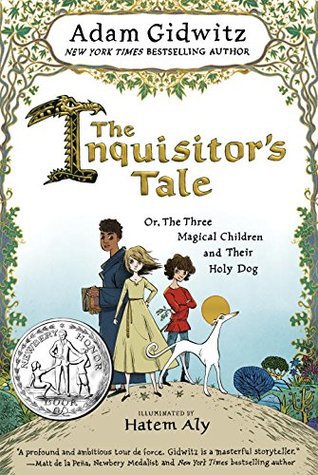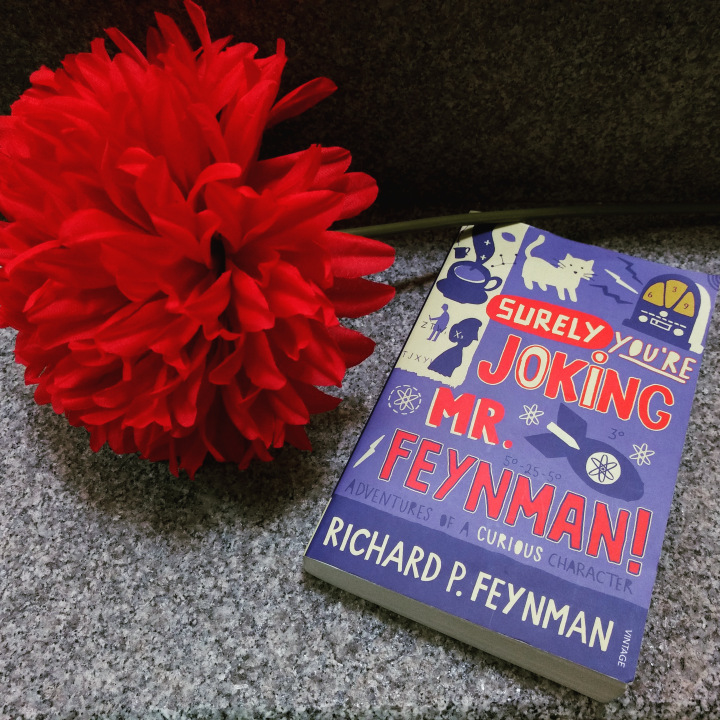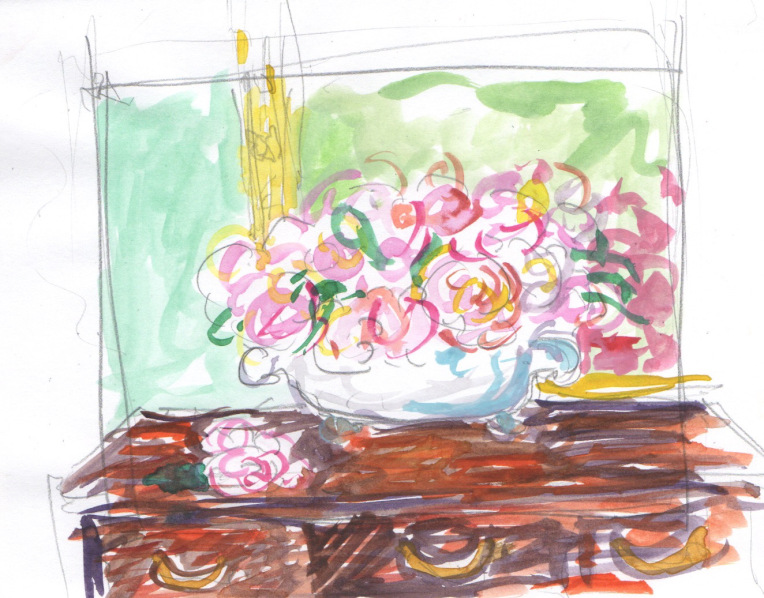I love middle grade books for several reasons. First of all they always feature fascinating
adventure stories. Second, middle grade authors don’t feel the need to “spice up” their writing with annoying romance side-plots.
So yeah, that was half praise half rant, but you get what I mean.
 The Inquisitor’s Tale by Adam Gidwitz
The Inquisitor’s Tale by Adam Gidwitz
Sometimes, while browsing the library shelves, my mom will choose books she thinks I’ll like (she’s always right!). Recently she picked up The Inquisitor’s Tale by Adam Gidwitz, and it turned out to be the best middle grade book I’ve read in over a year.
The story follows a young monk, a peasant girl, a Jewish boy, and a sainted dog as they outrun first bounty-hunting knights and then the king of medieval France.
It goes without saying how much I love historical fiction, but this book was quite exceptional.
To begin with, the setting is incredibly vivid and the scenes that take place in a medieval inn throughout the book are highly entertaining. Gidwitz did the medieval time period justice by featuring superstitious beliefs that would’ve existed at the time, and the characterization was fantastic. As you might’ve gathered from my brief description of the book, The Inquisitor’s Tale has a pretty diverse cast.
At times the dialogue doesn’t sound period appropriate, but I feel like the quality of the writing, the originality of the plot, and the terrific characterization make up for it.
All the qualities of The Inquisitor’s Tale that I’ve mentioned above already make it a great book, but what makes it noteworthy in my eyes is its discussion of religion. Religion played a crucial role in history; most wars in the medieval era took place because of it.
Unfortunately, many authors of historical fiction choose to overlook religion’s importance in history, and only have their characters mention it in passing. Now I understand religion is controversial; blah, blah, blah. That’s not what I’m talking about here. The fact of the matter is that religion was a part of people’s lives, so for the sake of historical accuracy, religion should be mentioned.
In The Inquisitor’s Tale, each main character’s religious identity plays a major role in the plot, and I really appreciated that. And while religion definitely added dimension to the character’s decisions, the story wasn’t about their religions themselves. Rather it was about how the characters learned to respect each other’s beliefs and overcome their prejudices. Not to mention the added boost to historical accuracy.
My favorite quote from this book goes as follows:
Chértien points at her. “That’s what I meant! That’s my answer to your question! You asked why God would make bad things happen? I’ll tell you why. God is a troubadour.”
…”Listen!” He’s deadly serious. He leans forward on his stool, and though half the inn lies between him and the children, he seems to be whispering to them alone. “Life is a song, composed and sung by God. We are but characters in His song. Hildebrand doesn’t think his song is beautiful. He’s either going to kill his son or die himself. It’s not beautiful to him at all. But that’s because he can’t hear it. He’s in it.”…
“So! If we could hear our own songs, if we could see God’s creation the way God does, we would know it’s the most beautiful song there is.”
-Adam Gidwitz, The Inquisitors Tale
Anyway, I totally recommend The Inquisitor’s Tale. It features an amazingly written cast of characters, lots of funny scenes, and a quest to save hundreds of years of knowledge.
Advertisements Love it? Share it!




